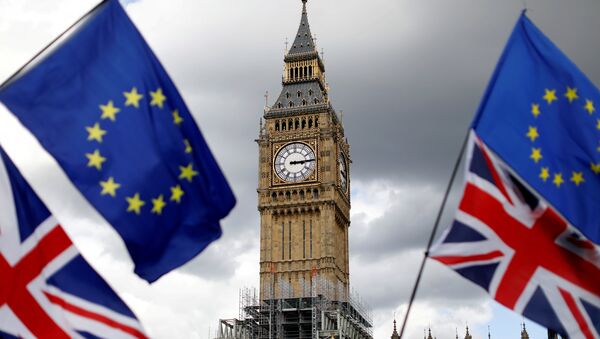"The option of leaving the EU with no deal and entering World Trade Organization (WTO) rules would lead to the greatest economic losses for the UK. This would reduce future GDP by around five percent over ten years, which is a loss of $140 billion," the Rand Corporation think tank said in the report’s key findings.
The think tank has examined eight possible Brexit scenarios, coming to the conclusion that only one of them would lead to economic gains for the United Kingdom, a deal that would involve an unlikely trilateral UK-EU-US free trade agreement.
The day before, the Ernst and Young (EY) accountancy firm reported that the UK may lose 10,500 jobs on the first day of Brexit due to their relocation from the country, while the Irish capital of Dublin and the German city of Frankfurt may benefit as financial centers from London's withdrawal from the bloc.
READ MORE: Lawmakers Force UK Government to Rethink Over Greater Scrutiny on Brexit Changes
Brexit negotiations between the United Kingdom and the European Union officially kicked off on June 19 and are due to be completed by the end of March 2019. London is taking steps to reach trade agreements with non-EU states, as their current trade with them is carried out under the EU regulations.
Last week, London and Brussels announced a long-anticipated breakthrough in Brexit talks, paving the way for the negotiators to move to the second phase of talks, dedicated to future trade relations.
During the talks within the final round of the first phase of Brexit, Theresa May, European Commission President Jean-Claude Juncker and the commission's chief Brexit negotiator Michel Barnier had to agree on the basic terms of Brexit, including the question of borders, Britain's financial payments to its European partners and the rights of EU citizens in Britain after Brexit.
The second stage of Brexit talks will begin as early as January 2018, a high-ranking EU source told reporters on condition of anonymity, adding that the issue of the transitional period would be on the agenda.


